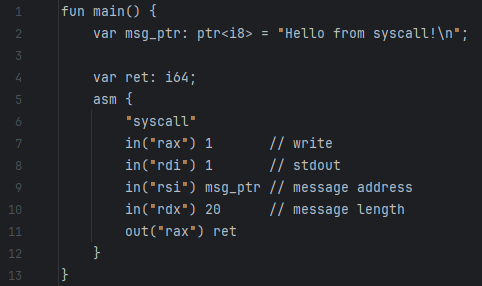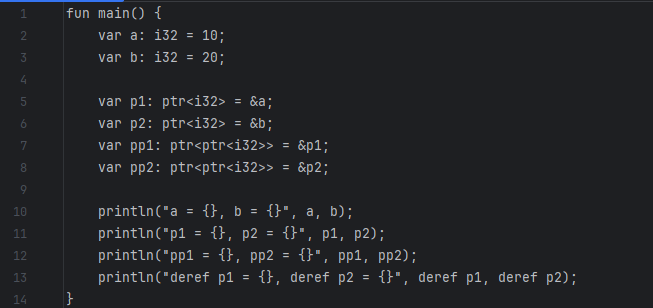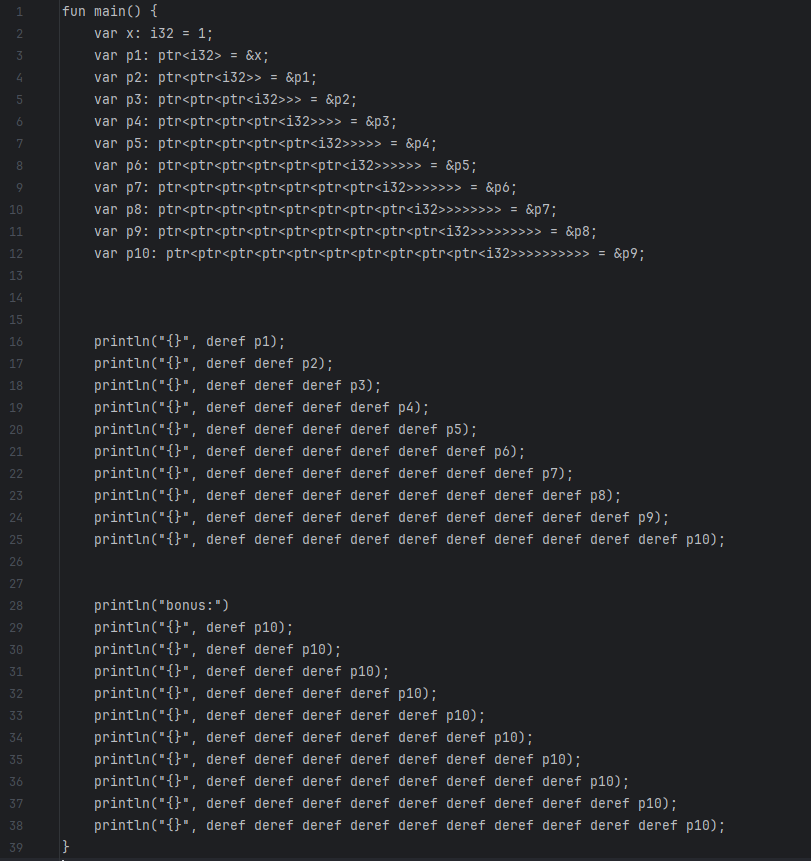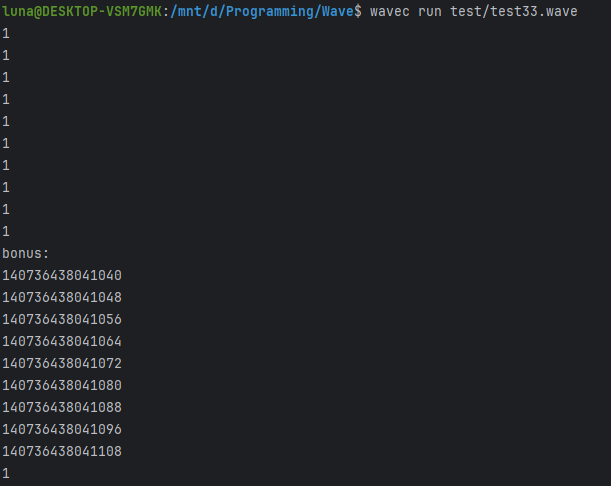Introduction to Wave v0.1.1-pre-beta: Inline Assembly, Pointer Chain, and Array Support
Hello! I'm LunaStev, the developer of Wave.
We are excited to announce Wave v0.1.1-pre-beta —
This update introduces inline assembly (asm {}) support, enabling you to write low-level system code directly in Wave, such as making syscalls with direct register manipulation.
Additionally, Wave now fully supports pointer chaining (ptr<ptr<i32>>) and array types (array<T, N>), including index access, address-of operations, and validation of literal lengths — expanding Wave's capability for systems-level and memory-safe programming.
These improvements bring Wave closer to its vision as a low-level but expressive programming language.
✅ Added Features
⚙️ Inline Assembly (asm { ... }) Support
-
Introduced
asm { ... }block syntax to embed raw assembly instructions directly within Wave code. -
Supports instruction strings (e.g.,
"syscall") and explicit register constraints viain("reg") varandout("reg") var. -
Variables used in
in(...)are passed into specified registers; variables inout(...)receive output from registers. -
Supports passing literal constants directly to registers (e.g.,
in("rax") 60). -
Pointer values (e.g.,
ptr<i8>) are correctly passed to registers such asrsi, enabling low-level syscalls likewrite. -
Internally leverages LLVM's inline assembly mechanism using Intel syntax.
-
Currently supports single-output only; multiple
out(...)constraints will overwrite each other. -
Does not yet support clobber lists or advanced constraint combinations.
-
Provides essential capability for system-level programming (e.g., making direct syscalls, writing device-level code).
⚠️ This is not a fully general-purpose inline ASM facility yet, but it enables practical low-level operations within Wave. Full support is planned for later phases.
⚙️ Make pointer chain explicit
-
Nested parsing like
ptr<i32>,ptr<ptr<i32>> -
Can create
ptr<T>for any type (no restrictions onT) -
Support for consecutive
derefoperations (e.g.,deref deref deref)
⚙️ Array type complete
-
IndexAccess (
numbers[0]) handling -
ArrayLiteral → Parse into AST and validate length
-
AddressOf → Support array literals with address-of values (e.g.,
[&a, &b]) -
Confirmed that
array<T, N>supports any type as T
✨ Other Changes
🧠 Library and Binary 2 Coexist
- Add lib.rs for easy package manager creation, development, and easy access.
Showcase










Thank you for using Wave! Stay tuned for future updates and enhancements.
Installation Guide
For Linux:
-
Download and Extract:
- Download the
wave-v0.1.1-pre-beta-x86_64-linux-gnu.tar.gzfile from the official source. - Use the wget command:
wget https://github.com/LunaStev/Wave/releases/download/v0.1.1-pre-beta/wave-v0.1.1-pre-beta-x86_64-linux-gnu.tar.gz - Extract the archive:
sudo tar -xvzf wave-v0.1.1-pre-beta-x86_64-linux-gnu.tar.gz -C /usr/local/bin
- Download the
-
Setting up LLVMs
- Open a terminal and type:
sudo apt-get update
sudo apt-get install llvm-14 llvm-14-dev clang-14 libclang-14-dev lld-14 clang
sudo ln -s /usr/lib/llvm-14/lib/libLLVM-14.so /usr/lib/libllvm-14.so
export LLVM_SYS_140_PREFIX=/usr/lib/llvm-14
source ~/.bashrc
- Open a terminal and type:
-
Verify Installation:
- Open a terminal and type:
wavec --version - If the version number displays, the installation was successful.
- Open a terminal and type:
Contributor
@LunaStev | 🇰🇷
